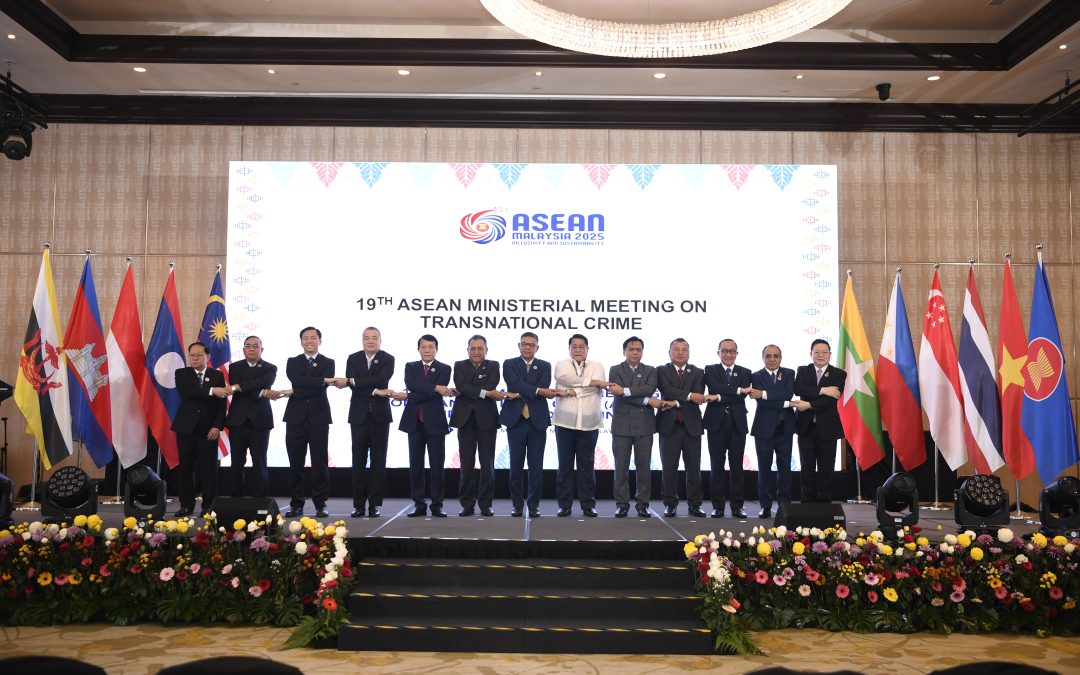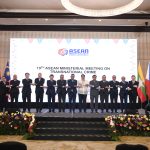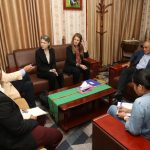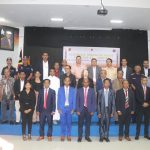Minister of the Interior of Timor-Leste
19th ASEAN Ministerial Meeting on Transnational Crime
Thank you Mr Chair.
His Excellency Minister of Home Affairs of Malaysia
Excellencies Minister and AMMTC leaders
Excellency Secretary General of ASEAN
Distinguished Delegates
Ladies and Gentlemen
I. Acknowledgements
First of all, I would like to express my sincere gratitude to HE Datuk Sri Anwar bin Ibrahim, Prime Minister of Malaysia for crucial support extended to Timor-Leste for realizing the dream of Timor-Leste as the 11th member of the ASEAN Community in this coming October.
I also would like to express my deepest gratitude to the H. E. Secretary-General of ASEAN, Dr. Kao Kim Hourn, for the continued leadership and unwavering support extended to Timor-Leste throughout our accession process. Your guidance has been instrumental in shaping our journey toward full membership and has strengthened our resolve to contribute meaningfully to ASEAN’s collective goals.
I would also like to extend my sincere appreciation to the H. E. Datuk Seri Saifuddin Nasution Bin Ismail, Minister of Home Affairs of Malaysia, AMMTC Leader of Malaysia for inviting me to participate in this important ministerial meeting.
We commend the efforts of AMMTC Leaders under Malaysia’s ASEAN Chairmanship in promoting the theme of ASEAN ‘Inclusivity and Sustainability”, which reflect our shared commitment to regional peace, security, stability and prosperity within an inclusive and sustainable framework.
Malaysia’s commitment to regional cooperation and its role in fostering dialogue and collaboration among ASEAN member states are truly commendable. Your hospitality and the excellent arrangements for this meeting reflect Malaysia’s dedication to advancing our shared objectives.
Introduction: Timor-Leste on the Path to ASEAN Integration
It is with profound honor that I address Your Excellencies at this 19th ASEAN Ministerial Meeting on Transnational Crime in this historic city of Melaka. As a young democratic nation celebrating over two decades of independence, we stand on the threshold of a transformative milestone: our full accession to ASEAN, expected in October 2025.
This transition from observer to full member represents far more than a formal recognition of our sovereignty. It symbolizes the culmination of a meticulous process of institutional alignment, legal reform, and modernization of our internal security capabilities. Strategically positioned at the crossroads of the Indian and Pacific Oceans, Timor-Leste recognizes that our unique geography presents both exceptional opportunities and heightened responsibilities in combating transnational threats.
Our journey to ASEAN has not been merely bureaucratic; it has been a profound transformation of our security institutions. From ratifying the United Nations Convention against Transnational Organised Crime to implementing structural reforms in our criminal justice system and security institutions, every step has been guided by the conviction that national and regional security are indivisible. As a natural bridge between the Community of Portuguese-Speaking Countries (CPLP) and ASEAN, Timor-Leste plays a unique role in the regional security architecture, facilitating cooperation between two strategic communities in the fight against transnational crime.
National Reforms: Institutional Modernisation for Effective Security
At the national level, the Program of the IX Constitutional Government places the Democratic Rule of Law and good governance at the heart of our internal security strategy. The structural reforms we have implemented aim to eliminate irregularities, promote transparency, and ensure that our security forces are composed of qualified, accountable professionals supported by efficient and inclusive systems and fully aligned with international best practices.
In the second phase of our Internal Security Plan 2011 – 2040, we are focused on advancing the second phase dedicated to the “Expansion and Development of Internal Security which includes reforming the legal framework to modernise and enhance the performance of the security forces including police and immigration. By strengthening institutional capacities, improving resource allocation, and fostering inter-agency coordination, we aim to create a security environment that effectively addresses contemporary challenges while upholding the rule of law and protecting the rights and well-being of all citizens.
The modernisation of border management is a strategic priority, driven by the our Internal Security Strategic Plan 2011 – 2040. These instruments adapt our capabilities to contemporary challenges of organised crime, cybercrime, and non-traditional threats, with particular emphasis on coordination between all our security forces.
Continued investment in security infrastructure and technologies, including digital border control systems and data analysis platforms, has significantly enhanced our operational readiness against transnational networks. At the same time, international training programmes and technical cooperation have equipped our officers with advanced skills in criminal investigation, financial analysis, and cybercrime response.
Regional Cooperation: Integration into ASEAN’s Security Architecture
The regional dimension of our strategy is anchored in systematic engagement with the AMMTC-SOMTC mechanisms and the progressive implementation of regional instruments, including the Melaka Declaration and related documents emerging from this ministerial meeting. As a future full member, we have consistently invested in aligning our security forces and services with regional cooperation platforms and early warning systems.
Transnational crimes continue to pose a serious threat to the ASEAN region amid the current progress. Therefore, AMMT-SOMTC mechanisms continue to be an important platform to assess our progress and collaboration in overcoming existing challenges as well as developing practical strategies and directions for future actions and answers to these challenges.
Timor-Leste has a strong commitment to working with its neighbors to combat cross-border crime and this is the robust bilateral cooperation that we consider essential for regional success.
The ASEAN Plan of Action 2016-2025 against Transnational Crime and the thematic cooperation roadmaps, including ASEAN-China initiatives, provide the structural framework for our operations. Recent experience demonstrates that technical interoperability, continuous capacity-building cycles, and sustained operations are decisive in containing phenomena such as human trafficking, drug trafficking, cybercrime, and money laundering.
International Dimension: Global Partnerships Against Borderless Threats
On the international front, the Government of Timor-Leste has steered our strategy through a multidimensional approach that combines robust multilateral commitments with effective operational partnerships. The ratification of the Palermo Convention and its supplementary protocols on human trafficking and migrant smuggling has laid the legal foundation for our integration into global mechanisms of judicial and police cooperation.
Our collaboration with INTERPOL, operationalised through the National Central Bureau in Dili, has yielded concrete and measurable results and we keep on working with our international partners, with reaffirmed our unwavering commitment to international justice and the rule of law.
The strategic partnership with the United Nations Office on Drugs and Crime (UNODC) has been instrumental in strengthening our investigative capabilities and harmonising our procedures with international standards. Technical capacity-building programmes, including specialised training in financial analysis and complex crime investigation, have prepared our officers to tackle the increasing sophistication of transnational criminal networks.
Conclusion: Commitment to a Secure and Resilient ASEAN
Your Excellencies, in concluding this intervention, I reaffirm Timor-Leste’s unwavering commitment to building a more secure, resilient, and prosperous ASEAN. Our journey from observer to full member represents not only a national achievement but a contribution to the collective strengthening of the regional security architecture.
The challenges of transnational crime are complex and constantly evolving, but our collective response—based on genuine cooperation, resource sharing, and strategic coordination—offers real hope for sustainable progress. Timor-Leste is ready to fully implement the instruments and decisions approved at this ministerial meeting, actively contributing to transforming shared threats into opportunities for institutional strengthening and effective protection of our communities.
Timor-Leste has made significant strides in combating transnational crimes through a combination of national, regional, and international efforts. These initiatives focus on strengthening legal frameworks, building institutional capacity, and fostering collaboration with global and regional partners.
With renewed focus on interoperability, intelligent border management, and advanced police cooperation, we commit to implementing the common direction charted by Melaka, for the benefit of shared stability and prosperity in Southeast Asia and beyond.
Thank you.




